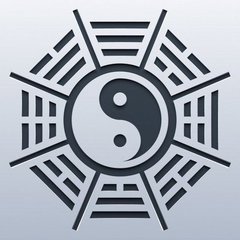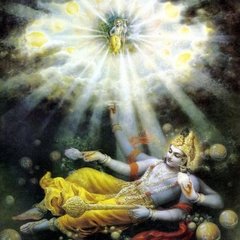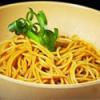Search the Community
Showing results for tags 'fear'.
Found 11 results
-
Open discussion. I'll start with an anecdote. As my life is setup right now, I work in an emergency department as a doctor. I see all kinds of people there. I face pretty intense situations and have to keep my cool. Throughout my months of taking upon the "doctor" role, I have become more and more confident in these types of situations. At first I held a lot of fear about what would happen and how to handle specific situations, but once you learn it, a lot of that fear disappears. This is not to say that the work cannot still be stressful, in that there's a lot to do and many obligations, lots to manage at the same time, pressures, it can still be depleting, etc. - but I wouldn't use the word fear anymore to describe my feelings toward it. As I drove home from grocery shopping today with my significant other, I crossed the road turning left, following the rules correctly, looking right and left, seeing a car to my left that blinks to the right, and think "okay, free ahead", and suddenly this guy overtakes the car in front of him about to turn, driving at least 70km/h where you're allowed to drive 50 km/h and has to push the brakes powerfully to avoid colliding into the side of the road. Instead of seeing his own mistake, he turns his car around, drives behind me and flashes the lights multiple times. Drives closer and closer very aggressively. At this point not only my significant other but also myself feel adrenaline rushing into the body and fueling the mind, "what should we do?" "maybe he'll hurt us". The classic fight-and-flight response. We've heard lots of stories around where we live which is close to a ghetto-place where many crazy things unfold. We turn the corner and he's still following aggressively so I decide to drive the car to the side, and he drives up next to me, and I roll down the window slightly. I think as he realises I'm not going to blame him, he simply says "Didn't you see I was coming?", and I just said something like, "It was a very unfortunate incident", and he says, "oh okay, just look next time", he seems to cool his demeanor and then gives a nod and drives away. Afterwards I'm struck by a deep disappointment in myself. Why was I that afraid? Why did my body and mind react so violently? It did not in any way or form help the situation. There was no point to it. I could've had the same conversation with him, perhaps much better, if I had been in a fearless state of mind. Instead, I was unconfident and afraid and answered him timidly. My significant other said it was overall well done as I defused the situation which could've gone a lot worse if we were unlucky and I had pushed him, as the guy was clearly looking for a fight. Maybe. I still can't help but think that fear ultimately doesn't help and it surely doesn't feel like it's a wise or elevated state to be in either. On the contrary. So that made me think... what is fear exactly? It disappeared as quickly as it came. But is it just ignorance? Ignorance of the unknown? Or is it rather all about attachment to life? Being afraid of losing what one has? Or is it instead simply all due to weak "kidneys", and people with strong kidneys never really feel fear like that? Either way, would be curious to hear people's thoughts. How does a practictioner approach fear? How does a practictioner eventually overcome it completely?
- 205 replies
-
- 11
-

-

-
- fear
- fearlessness
-
(and 4 more)
Tagged with:
-
Another interesting piece from Lion's Roar, this one is on Chod: Welcome to the Charnel Ground
- 6 replies
-
- 7
-

-

-
- chod
- compassion
-
(and 1 more)
Tagged with:
-

Emotions in Health Preservation and Internal Training
senseless virtue posted a topic in Daoist Discussion
Discussion about the meaning and importance of emotional regulation in preserving good health and being a competent internal training practitioner. There are a few ways to formulate the seven emotions in terms of Classical Chinese Medicine so here are two good sources giving slightly different points of view. Please note that this is an issue of translation and interpretation: the basic theory connecting to the five element transformations and the respective organ systems is not changed. What Are The Seven Emotions? Suwen (The Book of Plain Questions) says "The five yin-organs of the human body produce five kinds of essential qi, which bring forth joy, anger, grief, worry, and fear." TCM also believes that certain organs are related to emotional activities, i.e. the heart is related to joy, the liver to anger, the spleen to pensiveness, the lungs to anxiety and the kidneys to fear. The emotions are considered the major internal causes of disease in TCM. Emotional activity is seen as a normal, internal, physiological response to stimuli from the external environment. Within normal limits, emotions cause no disease or weakness in the body. However, when emotions become so powerful that they become uncontrollable and overwhelm or possess a person, then they can cause serious injury to the internal organs and open the door to disease. It is not the intensity as much as the prolonged duration or an extreme emotion, which causes damage. While Western physicians tend to stress the psychological aspects of psychosomatic ailments, the pathological damage to the internal organs is very real indeed and is of primary concern of the TCM practitioner. Excess emotional activity causes severe yin-yang energy imbalances, wild aberrations in the flow of blood, qi (vital energy) blockages in the meridians and impairment of vital organ functions. Once physical damage has begun, it is insufficient to eliminate the offending emotion to affect a cure; the prolonged emotional stress will require physical action as well. The emotions represent different human reactions to certain stimuli and do not cause disease under normal conditions. 喜 Joy "When one is excessively joyful, the spirit scatters and can no longer be stored," states the Lingshu (The Vital Axis). However, in TCM, joy refers to a states of agitation or overexcitement, rather than the more passive notion of deep contentment. The organ most affected is the heart. Over-stimulation can lead to problems of heart fire connected with such symptoms as feelings of agitation, insomnia and palpitations. 怒 Anger Anger, as described by TCM, covers the full range of associated emotions including resentment, irritability, and frustration. An excess of rich blood makes one prone to anger. Anger will thus affect the liver, resulting in stagnation of liver qi (vital energy). This can lead to liver energy rising to the head, resulting in headaches, dizziness, and other symptoms. In the long run it can result in high blood pressure and can cause problems with the stomach and the spleen. It is commonly observed that ruddy, "full-blooded" people with flushed faces are more prone than others to sudden fits of rage at the slightest provocation. 憂 Anxiety "When one feels anxiety, the qi (vital energy) is blocked and does not move." Anxiety injures the lungs, which control qi (vital energy) through breathing. Common symptoms of extreme anxiety are retention of breath, shallow, and irregular breathing. The shortage of breath experienced during periods of anxiety is common to everyone. Anxiety also injures the lungs' coupled organ, the large intestine. For example, over-anxious people are prone to ulcerative colitis. 思 Pensiveness In TCM, pensiveness or concentration is considered to be the result of thinking too much or excessive mental and intellectual stimulation. Any activity that involves a lot of mental effort will run the risk of causing disharmony. The organ most directly at risk is the spleen. This can lead to a deficiency of spleen qi (vital energy), in turn causing worry and resulting in fatigue, lethargy, and inability to concentrate. 悲 Grief The lungs are more directly involved with this emotion. A normal and healthy expression of grief can be expressed as sobbing that originates in the depths of the lungs - deep breathes and the expulsion of air with the sob. However, grief that remains unresolved and becomes chronic can create disharmony in the lungs, weakening the lung qi (vital energy). This in turn can interfere with the lung's function of circulating qi (vital energy) around the body. 恐 Fear Fear is a normal and adaptive human emotion. But when it becomes chronic and when the perceived cause of the fear cannot be directly addressed, then this is likely to lead to disharmony. The organs most at risk are the kidneys. In cases of extreme fright, the kidney's ability to hold qi (vital energy) may be impaired leading to involuntary urination. This can be a particular problem with children. 驚 Fright Fright is another emotion not specifically related to only one organ. It is distinguished from fear by its sudden, unexpected nature. Fright primarily affects the heart, especially in the initial stages, but if it persists for some time, it becomes conscious fear and moves to the kidneys. Adapted and slightly edited from: http://www.shen-nong.com/eng/principles/sevenemotions.html The Seven Emotions and Qigong The seven human emotions, i.e. joy, anger, worry, anxiety, sorrow, fear, and terror are normal phenomena of life activities which do not induce diseases under normal circumstances. However, abnormal fluctuations in the “seven emotions” may directly affect he functions of the viscera, disturb the circulation of blood and Qi, and thus cause diseases. Being affected by these emotions, the exerciser of Health Qigong will not be able to enter a peaceful and calm state free of distracting thoughts. And the results of the exercise will be naturally affected. It is believed in theories of the traditional Chinese medicine that: “Anger impairs the liver, joy impairs the heart, worry impairs the spleen, sorrow impairs the lungs, and terror impairs the kidneys.” Yellow Emperor’s Classic of Internal Medicine: Su Wen: Ju Tong Lun says: “Rage drives Qi upward, overjoy slackens Qi, excessive sorrow consumes Qi, terror collapses Qi, …… and anxiety causes Qi stagnation”. All of these have indicated that the excessive and over-excited “seven emotions” will impair the mental and physical health of man to certain extents. Joy is an embodiment of the happy and delighted mind. Yellow Emperor’s Classic of Internal Medicine: Su Wen: Ju Tong Lun says: “Joy will harmonize Qi and facilitate both nutrient and defensive Qi.” But over-joy will impair the cardiac Qi, just as Yellow Emperor’s Classic of Internal Medicine: Ling Shu: Ben Shen says: “The spirit should be hidden and kept from being lost during joy”, indicating that excessive joy will impair the mind. The heart is the core, commander, and grand master of all the five Zang viscera. It is the key to the health of the body. By practicing Health Qigong, we can regulate the blood-pumping function of the heart and enrich cardiac Qi. Anger is an embodiment of agitated emotion of man. People get angry and furious when they are discontent and unsatisfied. Generally speaking, proper expression of emotions is important for maintaining the physiological equilibrium of the human body. But persistent rage, fury, and gloominess will cause negative effects on the organism. Gloominess impairs the liver and upheaves liver Qi. Blood will ascend with the upward invasion of liver Qi, congesting the brain and causing discomfort of the body. This will lead to headaches, cerebral distension, hypochondriac pains, chest distress, dry eye syndrome, and even critical symptoms such as faint, hematemesis, and shock. Yellow Emperor’s Classic of Internal Medicine: Su Wen: Ju Tong Lun says: “All diseases originate from Qi…… Anger will cause adverse rising of Qi and even hematemesis or diarrhea”. Yellow Emperor’s Classic of Internal Medicine: Su Wen: Sheng Qi Tong Tian Lun says: “Excessive anger leads to segregation of QI from the configuration; and blood stagnating in the upper part of the body will cause raged syncope.” The liver controls dispersion and blood storage. It facilitates the functional activities of Qi throughout the body, keeps unobstructed circulation of Qi in the channels of all viscera, stores blood, transports blood, and regulates and controls the blood supply for various parts of the body. Worry means something or someone that causes anxiety. Excessive worries will have negative effects on the organism, impede the movements of Qi, and cause Qi stagnation. It is believed in traditional Chinese medicine that: “anxiety causes Qi stagnation”. It was said in ancient times that: “When the shape is not straight, Qi will not move smoothly. When Qi does not move smoothly, the mind will not be at ease. When the mind is not at ease, spirit will be scattered”, indicating that obstructed circulation of Qi has a direct influence on the spirit of man. Excessive worries will lead to obscure complexion in the spleen and stomach, dyspepsia, insomnia and dreaminess, dizziness, and many other symptoms. Sorrow (depression) is the embodiment of sadness and depression. Excessive sorrow will impair the pulmonary Qi and cause short breath, just as Yellow Emperor’s Classic of Internal Medicine: Ling Shu: Ben Shen says: “sorrow will block Qi and hamper its circulation” and “deficient pulmonary Qi will cause nasal obstruction and asthenia Qi”. Fear (terror) is the embodiment of apprehensive and fright. Excessive terror will impair the kidneys and cause chaotic Qi in the viscera. Yellow Emperor’s Classic of Internal Medicine: Su Wen: Ju Tong Lun says: “Terror collapses Qi……Terror disorders Qi”. To sum up, all “seven emotions” have important connections with the internal organs of the human body. The “seven emotions” are normal emotional signs of man and do not induce diseases under normal circumstances. And they actually play an important role in maintaining the normal physiological functions of the human body. But over-excitation which exceeds the normal range of regulation of the human body will result in diseases. Exercises of Health Qigong are mainly featured by: Body regulation, breath regulation, and mind regulation. Body regulation is the basis for breath regulation and mind regulation, while mind regulation is the core of the “Three Regulations”. It provides good regulating effects on all the viscera. Therefore the “Three Regulations” have very good influencing, regulating, and controlling effects on the mental state and temperament of man. And the emotional changes of the “seven emotions” will in turn influence the results of Health Qigong exercise. Therefore it is of great importance and value to learn the “seven emotions” and maintain a normal state of the “seven emotions” during the practice of Health Qigong. By doing so we can gradually replenish the “three treasures” of body (essence, Qi, and spirit) to achieve sufficient essence, abundant Qi, and complete spirit and thus truly understand the essentials of health preservation, disease prevention, and body-building. Adapted from here (original source isn't available anymore): https://neigong.net/2011/09/26/the-seven-emotions-and-qigong/ -
Hey guys, I'm new here and I'm still learning. I have a lot of fears, anxiety and social phobia, and it was told to me to practice the INNER SMILE and THE SIX HEALING SOUNDS to solve these problems. Then I went to look for a book to buy about this practice and I found Gilles Marin book "Five Elements, Six Conditions"(which is a great book btw) and I just finished reading it. In the book he doesn't describe the six healing sounds practice, just the inner smile. So, I was thinking in practicing the six healing sounds from Mantak Chia and the Inner Smile from Gilles Marin book. -If there is something wrong please advice me- I have 2 questions: 1- Should I practice the six healing sounds before the inner smile or after? Because I read somewhere that the six healing sounds takes away the organ energy so you need to tonify the organ after, so I tought the right order is: The Six Healing Sounds before and The Inner Smile after, but I want your confirmation on this, please. 2- Since there are 5 organs, should I practice them every day(7 days of the week) or should I practice them separated, in example: Lungs Monday, Liver Tuesday, etc.. ??? I hope it's understandable, english is not my first language, sorry for the mistakes. Thanks in advance!!
- 7 replies
-
- 1
-

-
- inner smile
- six healing sounds
-
(and 3 more)
Tagged with:
-
I have been noticing that different people use different tools, through which, they get over, or face their issues and fears. Some of different tools so far I knew about: - The use Lucid dreams through which they face the issue in dream world, - visualization. - The use hypoginia state - NLP (Neuro-linguistic programming) professional or psychotherapist. - The use the present process, in maintaining focus on the now. - observing thoughts. What are your technique to release your triggers and problems ? how it works for you? did you try any other technique ? and you ever wondered that some technique may fall under the "escapism" way or maybe dualistic approach ? Thank you for your time
- 19 replies
-
- 1
-

-
- Meditation
- healing
-
(and 2 more)
Tagged with:
-
-
Why are we afraid to die if it's inevitable? Why do we want to survive, even though no one really survives? Why do we want to leave a legacy, when all stories fade into oblivion? Why do we want the impermanent to become permanent? Why do we want for things to be other than they are? The same question in 5 variants. The answer shall destroy the world.
- 274 replies
-
- 1
-

-
I'm starting to recognise...maybe it is my career that is messing me up. Evidently, what we choose to do daily, is the practice that shapes us into what we are. I've been in entertainment, full time, for nearly 5 years, but my anxieties have really been present for almost 10. It was easy when I was young...I was sheltered and had little responsibility. I was still in the same field (about to leave school so still developing) when I started losing sleep and I guess that was because I realised, but would never admit to myself, that I was setting myself up for lack of stability and a lot of stress. All for the purpose of "doing something fun with my life". I think the fun has been over ridden. Last year was the best, but this year, things have quietened down and I feel like I'm back to stage one. I now inevitably practice mindlessness every day, because I am desparate for clients. Phone calls here and there, one half-sent email, there goes my twitter, then more calls, finish that email etc etc. It's all "business related", but scrappy as hell. I'm on a TV set tomorrow and I don't even know what time I start and finish until late afternoon today. How can one ground oneself with a lifestyle like this?? Nothing is focused, there is too much juggling and I don't think I'm alone in the world here. At the same time, I could carry on with all those in the same boat and we could all be mindless wrecks together, or I could exit stage right and take a new path. If anybody else has been in my shoes, I would love to hear from you. Bless.
-
Hi all, Those that have read my posts before may be aware that I began meditating due to chronic anxiety and insomnia. Although overall my condition has improved, I notice it comes back in waves. I am going through a change right now with promising yet risky career prospects on the horizon. With this, and Christmas coming up (my parents and siblings are totally disbanded which is sad and difficult for me as I'm therefore responsible for keeping three different branches happy) I know this will be causing it. The interesting thing is, when I shut my eyes at night, I am not conscious of what is causing my anxiety and insomnia. I can be relaxed, and mindful of my breathing, yet my mind is screaming all sorts of things and being very disruptive. Like I say, all sorts of things...nothing particularly related to something I am consciously worried about. That is the background anyway. I don't expect any answers but the context might help people understand where I'm coming from with the next part...my question: ------ So anyway, I am practicing breathing into the Dan Tien. I find that anything else is too advanced for me and I need to return to basic breathing practice. I have noticed that I am doing this successfully, and can gain peace from my motor-mind. However, I also notice accelerating heart-rate. Again, no idea what is causing it, something completely subconscious. But I will sit, and feel good about being sat in meditation, but slightly weirded out by my heart panicking by itself. Is anybody able to give me an insight into what is going on? Thanks in advance.
- 42 replies
-
- 1
-

-
- taoism
- meditation
-
(and 8 more)
Tagged with:
-

SONIA BARRETT(author of The Matrix - "HOLOGRAPHIC GAME"
gentlewind posted a topic in General Discussion
SONIA BARRETT - "HOLOGRAPHIC GAME" https://www.youtube.com/watch?v=YVl88xw6U_I A very enlightening 1hr 18mins. In fact it was enthralling and captivating. Its refreshing when something truly resonates. Namaste, gentlewind -
Greetings. I have heard so much about cautions that must be taken during practice and how people burn their own systems with excess Qi. Did anyone actually experience a burnout or personally knows someone else that did so? What were the symptoms? I ask this because I recently attended to a Vipassana 10-day course, and it pushed me to the limit, I really thought that i was burning myself up, but the teacher said that the experiences were normal, so I simply continued with the practice. and today I feel normal, not fucked up. Here were some experiences I had, (please do not compare them with your own experiences, and do not hate me for sharing them, my intention is not to be proud of them at all, just to share, and forget them emptying myself for they are nothing but transitory, Aniksha): 2nd day at night, when I went to sleep I felt energy acumulating at my nose tip, zooming downwards toward my chest cavity and exploding over there. (I heard other people having the same experiences and sharing them with the teachers at night time, which said they were normal, those "explosions"). 4tth day during a sitting I was with eyes mildly oppen when i suddently percieved the arms of my neighbor meditator as a little girl standing in sand dunes in a desert - alucination - breath started suspencind, i Felt very scared and moved out of position to stop with the symptoms, which continued for about 2 hours, I went to eat some fruits while feelling that i was loosing contact with this reallity, I felt my Hui Yin constantly sinking as if it were loose sand. 5th day, Static energy acumulating in crown area and atracting alot of Qi over there, creating a great pressure in the skull with eventually made a sound of "cracking" on the top. I got scared and moved a bit out of position. 5th and 6th day, I could percieve energy in a form of a very thin thread of sound which felt as if it were golden in nature, especially on the central upper part of my spine, connecting with the center of my head. 7th day till 10th day. the extreme experiences were over, subdued, and i started to percieve an inner observator which was extremely silent and empty, I felt his as black or, even still, Voidness, the silence was kind of freaky but very very peacfull. througout the retreat I felt alooot of pain in the Sacrum area, as if someone were stabbing that area repeatedly with a knife, And I thought that the "Dragon Gate" was oppening, and alot of karmic issues were being delt with. During the whole reatreat I was very worried with the symptoms, i would go to the teacher and ask him if it was normal and he would always sa "normal, just continue, it is your fear that is coming up, stay equanimous, etc..." some times I would think that he did not understand my explanations (i spoke portugues, he was american and didn`t want me to speak english with him). anyways... I got to the conclusion that if there was a place that I could risk it all was during that retreat, and if I got insane ar something fucked up happened, I would spend somedays there to recover, so I just continued meditationg and meditationg .. and... the experiences subdued!! that is why I ask about wat are the limits... I discovered that I would always stop my practice as soon as something wieerd happened, and during the Vipassana course i "crossed the limits" and feel great now, as if it were necessary to "cross the limits" to deal with karmic issues. all kinds of opinions are welcome
- 7 replies
-
- What are the Limits?
- Burn-out
-
(and 2 more)
Tagged with:








